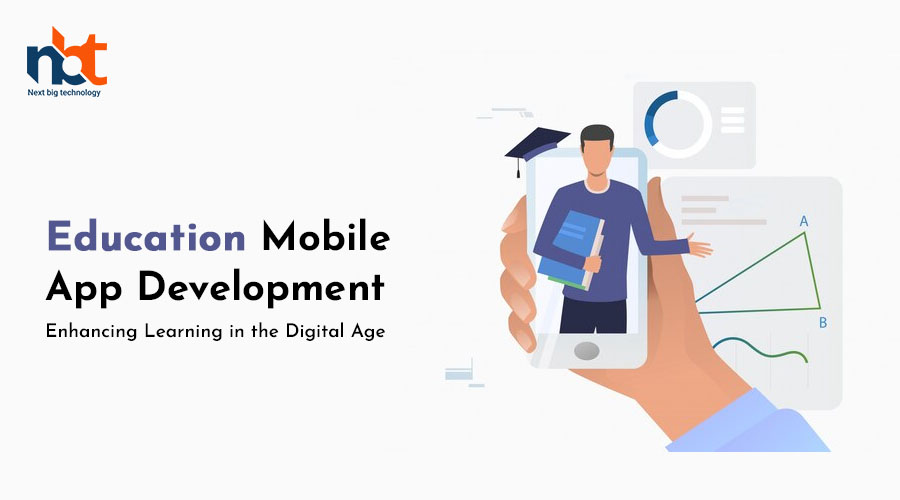In today’s fast-paced digital era, the way we acquire knowledge and access educational resources has undergone a significant transformation. Education mobile app development has emerged as a game-changer in the world of learning, revolutionizing how students, educators, and institutions interact with educational content. This article delves into the exciting realm of education mobile app development, exploring its benefits, challenges, and future prospects.
Table of Contents
1. Introduction: The Rise of Education Mobile Apps
Education mobile apps have gained immense popularity in recent years. They provide a versatile platform for learners of all ages to access a wide range of educational content, from textbooks and tutorials to interactive quizzes and video lectures. The convenience of learning on-the-go has made these apps an invaluable resource in the digital age.
2. Benefits of Education Mobile Apps
2.1 Personalized Learning
One of the standout advantages of education mobile apps is their ability to deliver personalized learning experiences. These apps often use algorithms to analyze a student’s progress and adapt the content accordingly. This means that each learner can receive a tailored education, addressing their strengths and weaknesses.
2.2 Accessibility and Convenience
Education mobile apps break down geographical barriers. Students can access educational materials from anywhere, making learning more accessible to individuals who may not have had the opportunity otherwise. Whether you’re on a bus, at home, or in a coffee shop, education is at your fingertips.
2.3 Interactive Learning
Traditional textbooks can be static and one-dimensional. Education mobile apps, on the other hand, offer interactive elements such as quizzes, simulations, and multimedia content. This interactivity not only makes learning more engaging but also enhances understanding.
2.4 Gamification in Education
Many education apps incorporate gamification elements, turning learning into an enjoyable experience. Gamified lessons, rewards, and challenges motivate students to stay engaged and progress in their studies.
3. Challenges in Education Mobile App Development
While education mobile apps offer incredible potential, they also come with their share of challenges.
3.1 Technical Complexities
Developing a robust education mobile app requires a deep understanding of both educational content and technical intricacies. Ensuring seamless functionality across various devices and operating systems can be challenging.
3.2 Content Quality
The success of an education app heavily relies on the quality of the educational content it provides. Developers must ensure that the material is accurate, up-to-date, and pedagogically sound.
3.3 Privacy and Security Concerns
Education mobile apps collect valuable user data, raising privacy and security concerns. App developers must implement stringent security measures to protect user information and ensure safe usage.
4. Steps to Develop an Education Mobile App
Creating a successful education mobile app involves several key steps:
4.1 Market Research and Analysis
Before embarking on development, thorough market research is essential to identify user needs and preferences.
4.2 Design and User Interface
A user-friendly interface and visually appealing design are crucial for engaging users and ensuring an enjoyable learning experience.
4.3 Development and Testing
Developers must create a reliable app, rigorously test it for bugs, and make necessary improvements.
4.4 Launch and Marketing
A well-planned launch and effective marketing strategy are essential to ensure the app reaches its target audience.
5. Future Trends in Education Mobile App Development
As technology continues to advance, education mobile apps will evolve to meet new demands. Here are some exciting future trends:
5.1 Artificial Intelligence (AI) Integration
AI-driven personalization and tutoring will become more prevalent, providing learners with tailored support.
5.2 Augmented Reality (AR) and Virtual Reality (VR)
AR and VR will create immersive learning experiences, enabling students to explore subjects in depth.
5.3 Blockchain for Credential Verification
Blockchain technology will be used to verify and secure educational credentials, reducing fraud.
5.4 Global Collaboration Platforms
Apps will facilitate global collaboration among students and educators, fostering cross-cultural learning experiences.
6. Conclusion
Education mobile app development has revolutionized the way we learn, offering personalized, accessible, and interactive education experiences. While challenges exist, the future of education through mobile apps looks promising. Embracing emerging technologies will further enhance the learning journey, making education more engaging and effective.
7. FAQs
Q1: Are education mobile apps suitable for all age groups?
Yes, there are education mobile apps tailored for learners of all ages, from young children to adults.
Q2: How can I ensure the privacy of my data when using education apps?
Choose apps with strong privacy policies and consider adjusting app permissions on your device.
Q3: Can education apps replace traditional classroom learning entirely?
Education apps can complement traditional learning, but they may not entirely replace the classroom experience.
Q4: Are there free education apps available?
Yes, many education apps offer free basic versions, with the option to purchase premium features.
Q5: What is the future of education mobile apps?
The future holds exciting possibilities, with AI, AR, VR, and blockchain playing significant roles in enhancing education through mobile apps.
Thanks for reading our post “Education Mobile App Development: Enhancing Learning in the Digital Age”. Please connect with us to know more about Education Mobile App Development.










